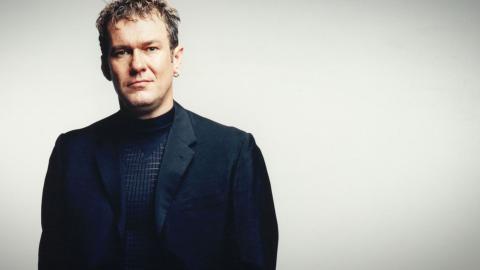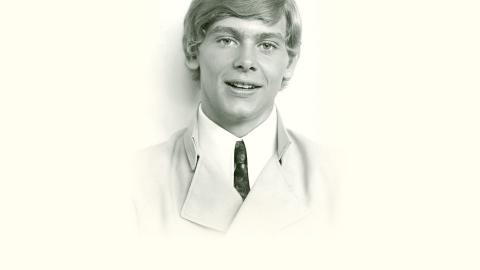

Cold Chisel
Cold Chisel
For a generation of Australian music fans, Cold Chisel are the Aussie pub rock band who broke the mould and whose songs are celebrated as anthems.
Cold Chisel formed in Adelaide, South Australia in October 1973. They began their career playing suburban gigs as a hard-rock covers band before settling in Sydney three years later.
They worked hard at making a name for themselves - building a reputation as a dynamic live act and growing their fan base by performing night after night in pubs and clubs up and down the east coast.
The NFSA is celebrating this legendary rock band with a collection of interviews, images, posters, reviews, documentary excerpts and more.
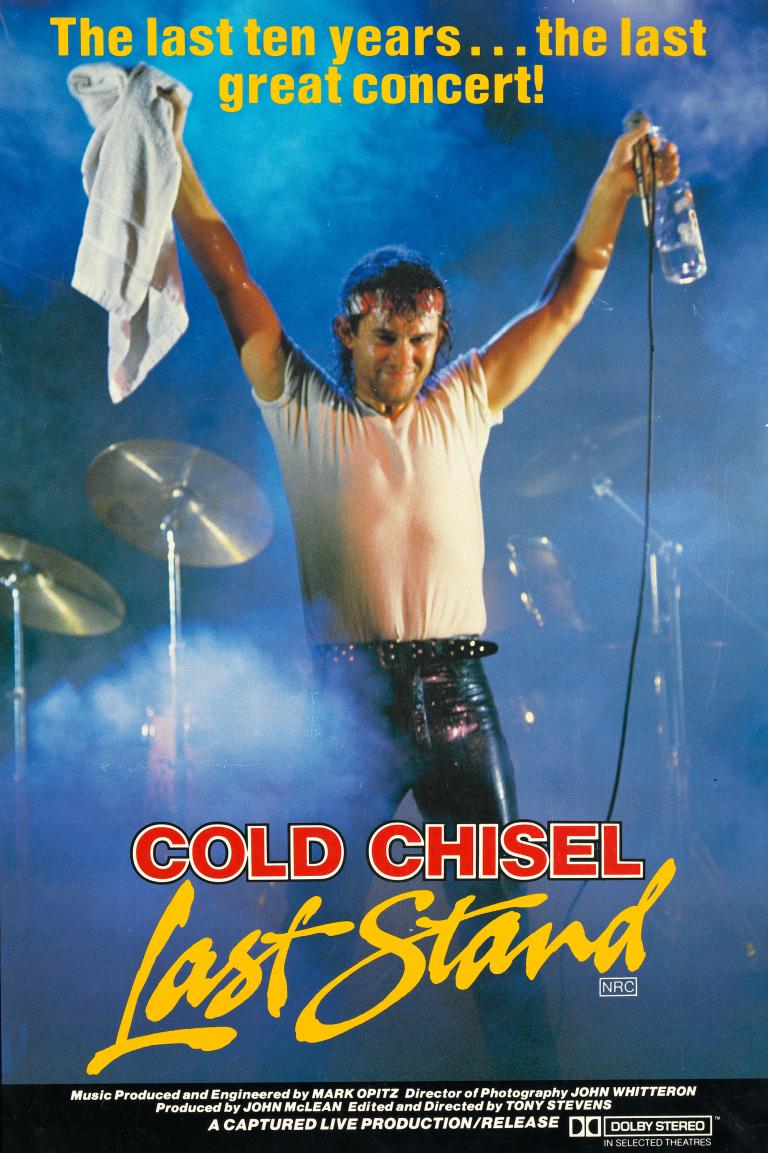
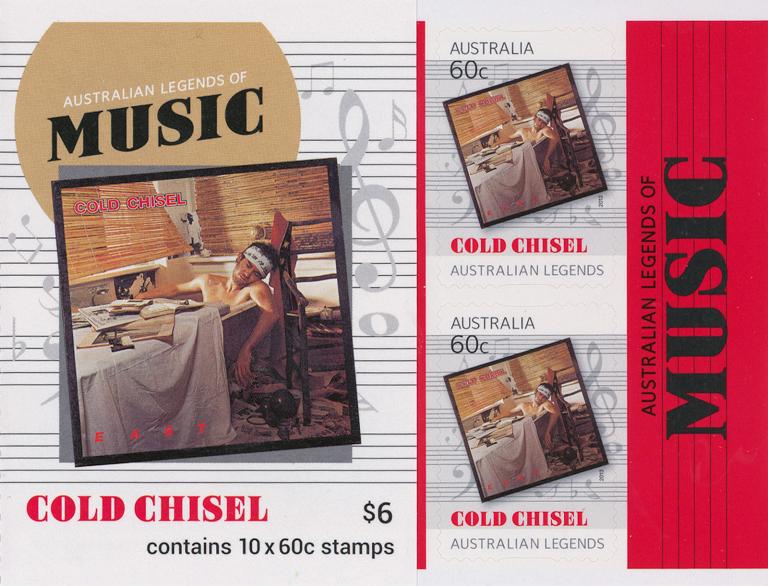
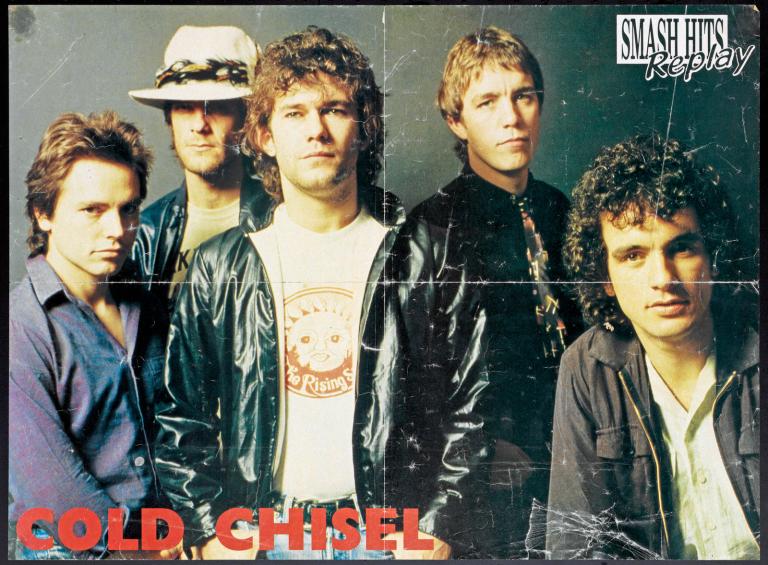
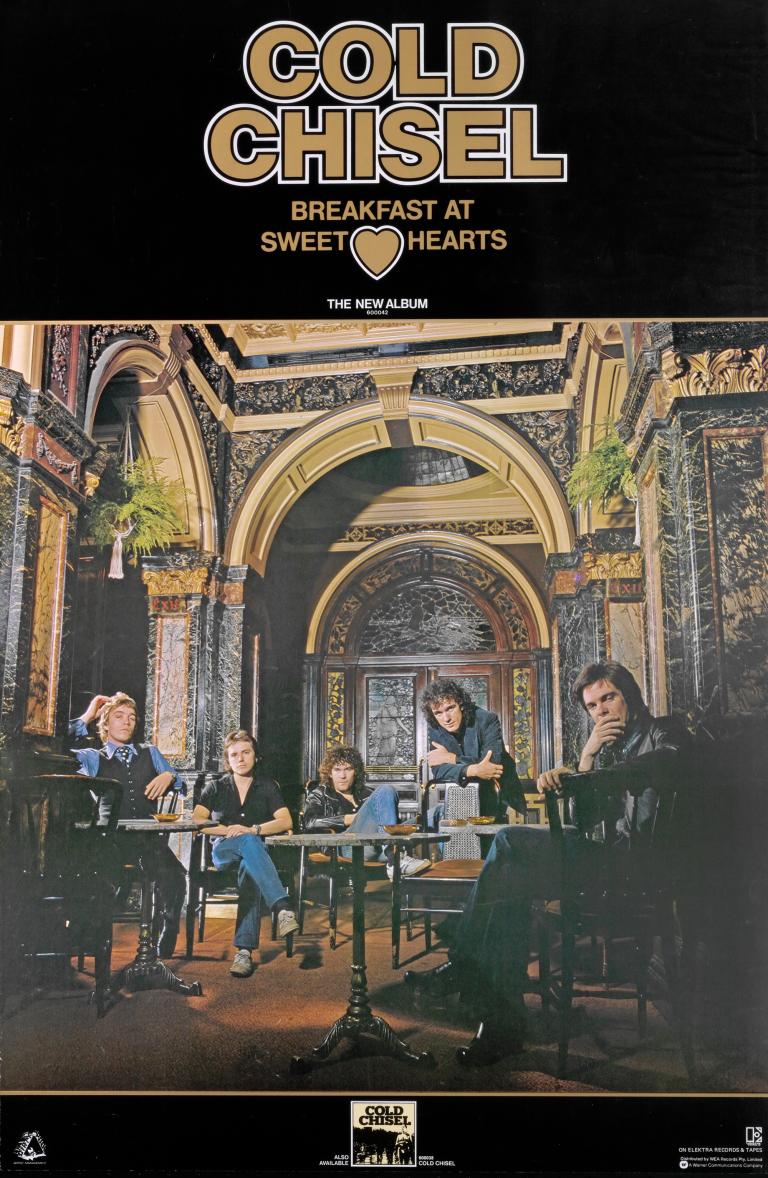
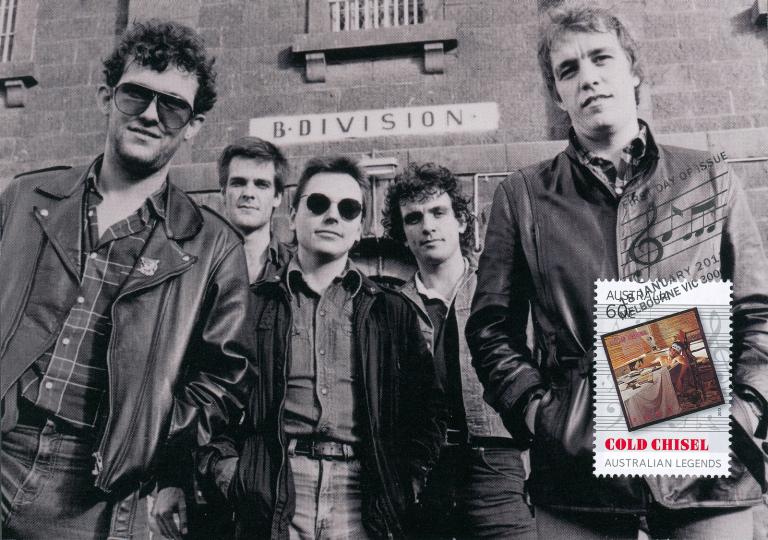
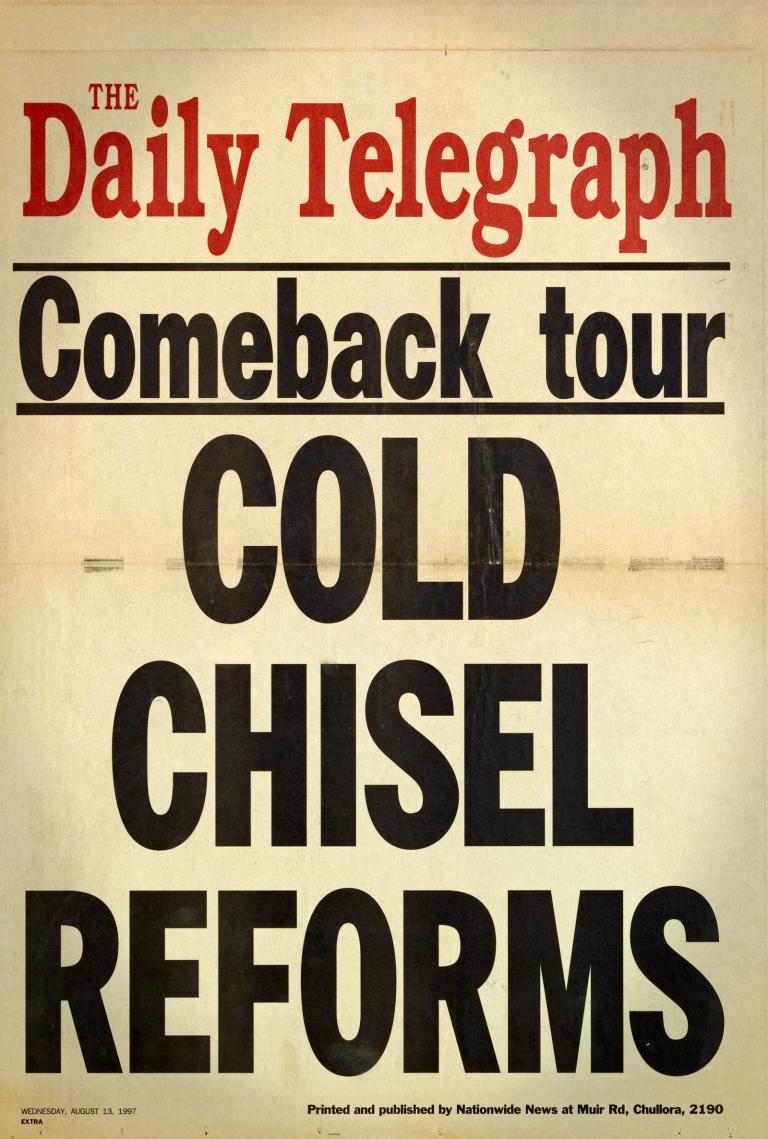
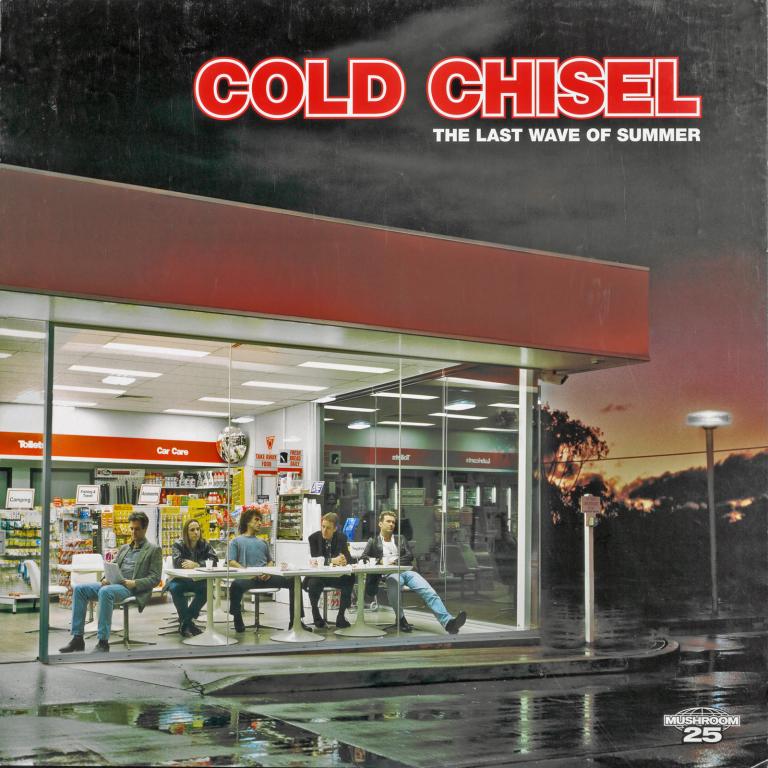
The National Film and Sound Archive of Australia acknowledges Australia’s Aboriginal and Torres Strait Islander peoples as the Traditional Custodians of the land on which we work and live and gives respect to their Elders both past and present.
